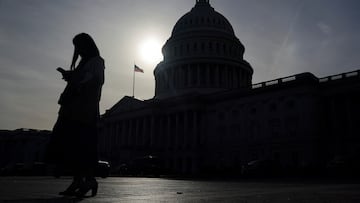The new expanded Social Security benefits may not be approved: Here’s what needs to happen before Dec. 31
The Senate has 6 weeks to pass the Social Security Fairness Act that would eliminate provisions that reduce benefits for nearly 3 million American retirees.

Congress passed the Social Security Fairness Act with a vote of 327 to 75 despite an attempt by two members of the ultra-conservative Freedom Caucus to derail approval of the legislation. Now it is in the hands of the Senate to vote on the bill which would eliminate provisions that reduce benefits for nearly 3 million American retirees.
However, the clock is ticking and there are only six weeks until the 118th Congress is adjourned for good. But the good news is that 62 senators have signed on to the bill, enough to defeat a filibuster, but it needs to be brought up for a vote first.
If the bill doesn’t get through the upper chamber before December 31st, it will have to go through the whole process once again with new lawmakers introducing the bill. That’s because none of those that finally got the legislation, decades in the making, to be considered for a vote will be in the new 119th Congress next year.
The House passed H.R. 82, the #SocialSecurityFairnessAct!
— Letter Carriers (@NALC_National) November 13, 2024
It’s time for the Senate to act. Contact your senators & urge them to pass the Social Security Fairness Act! pic.twitter.com/Isp987rFY9
What is the Social Security Fairness Act and who would it affect?
The Social Security Fairness Act of 2023, also known as H.R. 82, would eliminate the government pension offset (GPO) and the windfall elimination provision (WEP). These provisions reduce the amount that reitrees, or their surviving spouses and family members can receive from Social Security affecting roughly 800,000 and 2 million, respectively, beneficiaries.
WEP adjusts the amount a Social Security benefit for people who have less than 30 years of significant earnings from employment covered by Social Security and who also receive a “non-covered pension.” These are pensions that are “paid by an employer that does not withhold Social Security taxes from your salary, typically, state and local governments or non-U.S. employers.”
GPO on the other hand “reduces the spousal or widow(er) benefit by two-thirds of the monthly non-covered pension,” says the Social Security Administration. Of the 5.84 million spousal or widow(er) beneficiaries in 2022, the GPO applied to roughly 12.6% of them. Approximately 70% of those affected had their entire benefit offset by the GPO.
Related stories
The bill would add around $196 billion to the federal deficit over a decade according to estimates from the Congressional Budget Office (CBO). It would accelerate the depletion of the Social Security Trust Fund by about six months informed the nonpartisan CBO.
Get your game on! Whether you’re into NFL touchdowns, NBA buzzer-beaters, world-class soccer goals, or MLB home runs, our app has it all. Dive into live coverage, expert insights, breaking news, exclusive videos, and more – plus, stay updated on the latest in current affairs and entertainment. Download now for all-access coverage, right at your fingertips – anytime, anywhere.


